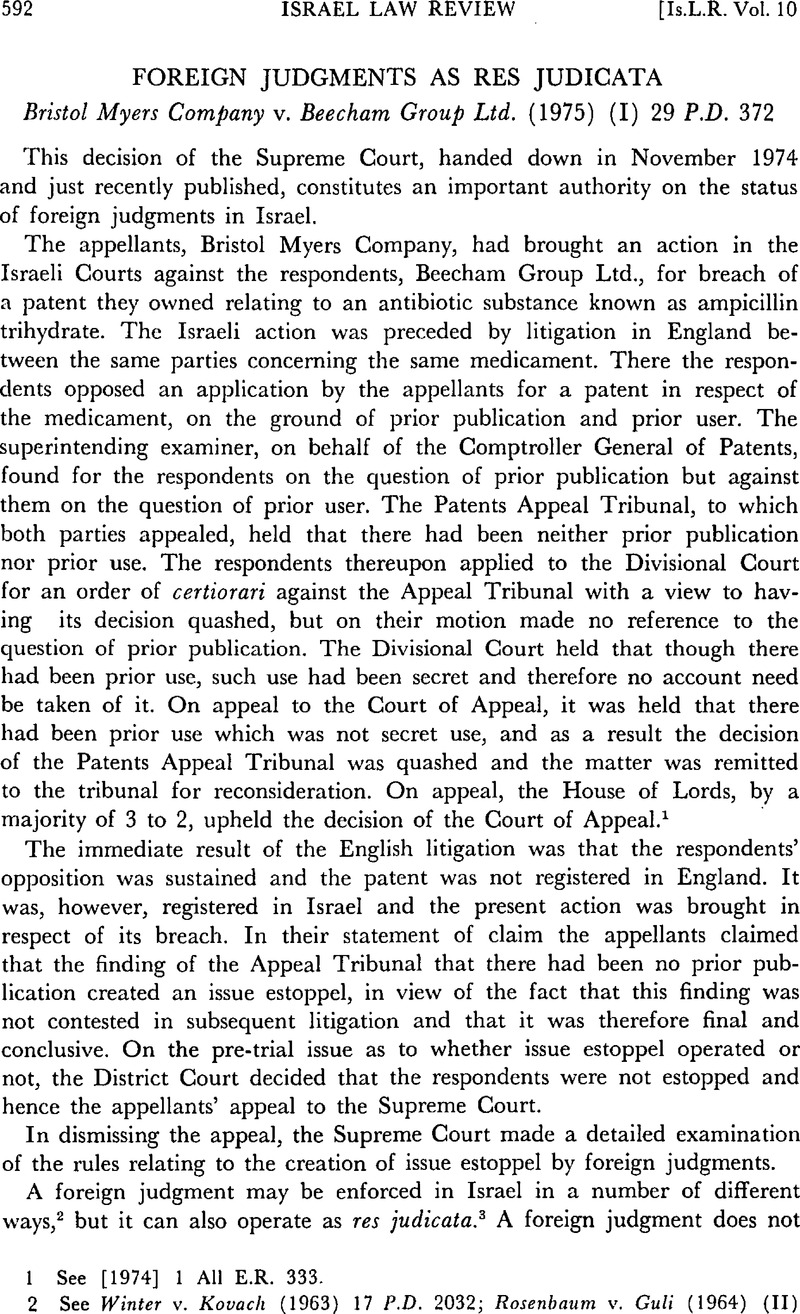No CrossRef data available.
Article contents
Foreign Judgments as Res Judicata
Published online by Cambridge University Press: 12 February 2016
Abstract

- Type
- Cases
- Information
- Copyright
- Copyright © Cambridge University Press and The Faculty of Law, The Hebrew University of Jerusalem 1975
References
1 See [1974] 1 All E.R. 333.
2 See Winter v. Kovach (1963) 17 P.D. 2032; Rosenbaum v. Guli (1964) (II) 18 P.D. 374, referring to the possibility of suing on the foreign judgment or on the original cause of action as well as proceeding under the Foreign Judgments Enforcement Law, 1958 (12 L.S.I. 82).
3 See Gross v. Sherut Express (1969) (II) 23 P.D. 807.
4 Winter v. Kovach, supra n. 2.
5 Carl Zeiss Stiftung v. Rayner & Keeler Ltd. (No. 2) [1967] 1 A.C. 853. For discussion of this aspect of the case see Bower, Spencer & Turner, , The Doctrine of Res Judicata (2nd ed., 1969) 170 ff.Google Scholar
6 Dicey, & Morris, , The Conflict of Latvs (9th ed., 1973) 1022.Google Scholar
7 Ibid. at p. 1027; Levontin, A. V., “Two Paradoxes in the Recognition of Foreign Judgments” (1967) 2 Is.L.R. 197.Google Scholar
8 A. V. Levontin, op. cit. The requirement of sec. 3(1) of the Foreign Judgments Enforcement Law, 1958, that the judgment sought to be enforced “was given in a state, the courts of which were, according to its laws, competent to give it” would suggest that internal competence in the foreign country concerned must be proved under the statute, thus obviating this anomaly.
9 See in particular Graveson, R. H., Conflict of Laws: Private International Law (7th ed., 1974) 8, 618Google Scholar, and authorities there cited.
10 The tendency of the Law Lords in the Carl Zeiss case (supra n. 5) was also to restrict the application of issue estoppel.


